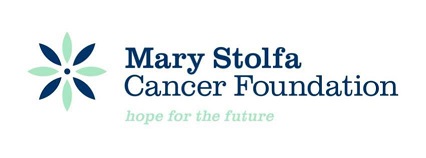| |
|
|
| |
Mouth Sores
Not everyone gets mouth sores. And if you do get them, most of the time it's not too bad and can be dealt with fairly easily.
The technical term for mouth sores is stomatitis. Confusing I know! Sounds like it should have something to do with the stomach, right? The term refers to irritation of the mucous membranes in the affected areas. This happens when cells of the mucous linings aren't replaced as quickly as needed due to the chemotherapy.
Symptoms may start with your mouth becoming extra sensative to certain types of foods such as spicy, sour or acidic. Actual sores may eventually begin to develop. Similar to cold sores, it may become painful to brush your teeth or use mouthwash.
Tips to help:
- From day one of chemo, rince your mouth out with baking soda and water a couple of times a day. The best way to beat mouth sores is to prevent them from ever erupting. Don't wait until you have the first onset.
- Brush your teeth with soft bristles and brush often. It's important to keep your mouth and teeth as clean as possible so there's less of a bacteria buildup. Also, use waterpiks instead of floss if you're having trouble bleeding due to a low white count. You don't want to further irritate the gums.
- Don't use alcoholic rinses. Oral-B makes a great non-alcoholic fluoride rinse. Your dentist can also prescribe something stronger for you. Also, you can use that baking soda and water mixture instead of mouthwash. It not only will serve it's purpose cleaning your mouth as a wash, it can also soothe your aching gums as well.
- Keep your lips moisturized. Blistex, Vaseline, Chapstick or some other product. If your mouth is very dry, drink plenty of liquids, moisturize dry foods with butter, margarine, gravy, broth, etc.
- Your diet. This all depends upon the person, but if you're having real problems you may want to stick with lukewarm or room temperature type foods instead of overly hot or cold. also, if you're having a lot of difficulty eating, try smooth foods like puddings, jellos, ice cream, baby food, eggs, mashed potatoes, yogurt, macaroni and cheese, custards, cooked cereals, cottage cheese, etc. Don't be ashamed to eat baby food. It's just adult food pureed. And it's nutritious.
- Avoid irritating, acidic fods and juices such as tomato and citrus (orange, grapefruit), spicy or salty foods and rough or coarse foods such as toast and granola. Carnation Instant Breakfast can be added to milk three times a day to satisfy your daily protein requirements.
- Try using a straw when drinking. This will enable the liquid to go directly to the back of the throat without touching the sores in your mouth.
- Talk to your doctor about seeing a dentist a few weeks before starting your chemotherapy. Chemo can make you more susceptible to infection so you may need to get your teeth cleaned or take care of any problems beforehand.
The information on this web site is provided for general information only. It is not intended as medical advice, and should not be relied upon as a substitute for consultations with qualified health professionals who are familiar with your individual medical needs. The MSCF disclaims all obligations and liabilities for damages arising from the use or attempted use of the information, including but not limited to direct, indirect, special, and consequential damages, attorneys' and experts' fees and court costs. Any use of the information will be at the risk of the user.
| Chemotherapy Side Effects | Tumor Markers-Grades/Prognosis | Cancer Clusters | Emotional Disorders | End of Life Issues | Loss, Grief, and Bereavement | Living with Cancer | Radiation Therapy | Support Groups |
| Return Home | Fundraisers | Donations | Wall of Honor | Stories of Hope | Information on Specific Cancers (A-M) | Cancer Issues | Contact Us | Site Index |
|
|
| |
|
|


